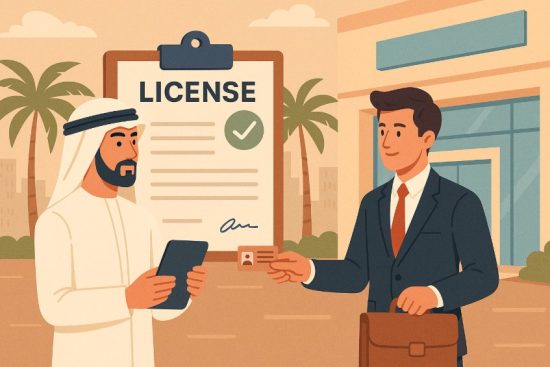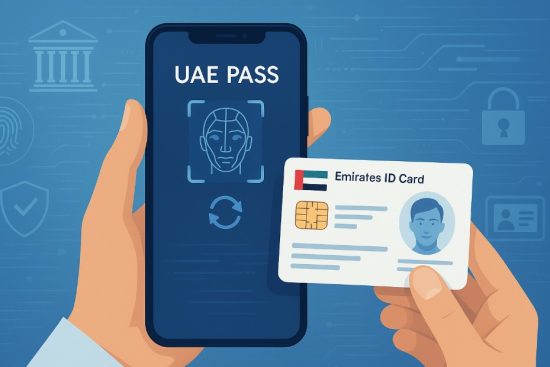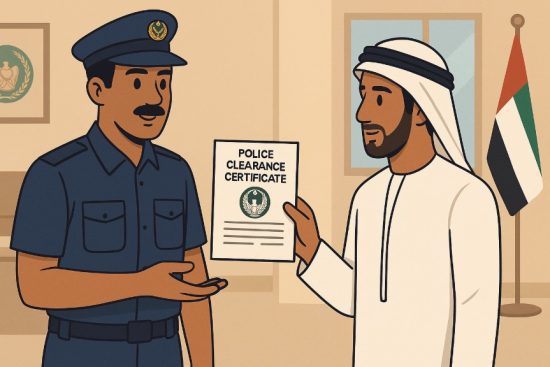
In a surprising turn of events that has caught the attention of global travelers and visa hopefuls alike, an Indian man’s dream vacation to Florida came crashing down, all within the span of just 40 seconds.
His B1/B2 visa application was swiftly denied by the US embassy, despite what appeared to be honest intentions and a planned two-week getaway.
The incident, which has since gone viral on Reddit, has sparked intense online discussions and shed light on the stringent realities of the US visa process for Indian applicants.
The 40-Second Interview That Shattered a Dream
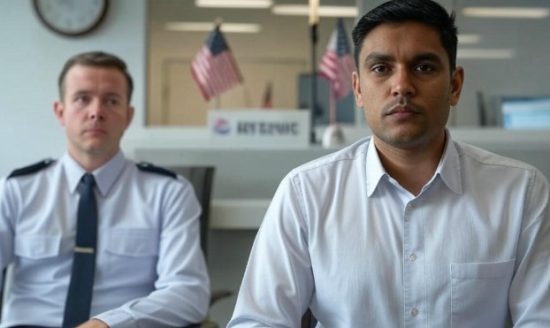
The story began when a young Indian man decided to take a well-deserved break with a two-week trip to Florida. His travel plans were exciting and well thought out, including visits to major attractions like Disney World, Universal Studios, and the Kennedy Space Center.
He also looked forward to meeting his girlfriend, who lives in Florida. He applied for the US B1/B2 visa, a common non-immigrant visa category used for tourism or business visits.
When he arrived at the US embassy for his visa interview, he expected a few standard questions, perhaps a review of his documents, and an explanation of his trip. Instead, what followed was an unexpectedly swift interview that lasted less than a minute. The consular officer asked only three questions:
- Why do you want to travel to the US?
- Have you travelled outside India before?
- Do you have any family or friends in the US?
He answered truthfully. His travel was for tourism. He had not travelled internationally before. Yes, he had a girlfriend in the United States. Without further questions or document checks, the officer handed him a Section 214(b) refusal form. That was the end of the interview — and of his vacation dream.
Understanding the Section 214(b) Visa Refusal
Section 214(b) of the US Immigration and Nationality Act is among the most commonly cited reasons for US visa rejections. This section presumes that all non-immigrant visa applicants are potential immigrants unless they can convincingly demonstrate that they intend to return to their home country after visiting the US. The burden of proof lies entirely on the applicant.
Consular officers assess multiple factors, including the applicant’s ties to their home country, financial stability, employment, family commitments, and past travel history. If any of these are missing or considered weak, the officer may issue a 214(b) denial — even if the applicant’s intentions are entirely genuine.
In this applicant’s case, the lack of international travel experience, combined with a personal relationship in the US, may have led the officer to question whether he would return to India after his visit.
Why the Visa Was Denied? – Red Flags in the Application
From the perspective of visa officers trained to spot potential immigration risks, the application likely raised a few immediate concerns. Firstly, the fact that the applicant had never travelled outside India suggested a lack of precedent for returning from overseas trips.
Secondly, while the applicant was open about his intentions, mentioning a girlfriend in the US could have unintentionally raised suspicions of potential immigration intent, even though the purpose of the visit was primarily tourism.
Lastly, though the applicant held a stable job in India, he did not present additional proof of strong ties, such as property ownership, dependents, or family obligations. These are all factors that strengthen a visa application by assuring the consular officer of the applicant’s motivation to return home.
Community Reactions: What Reddit Users Had to Say?
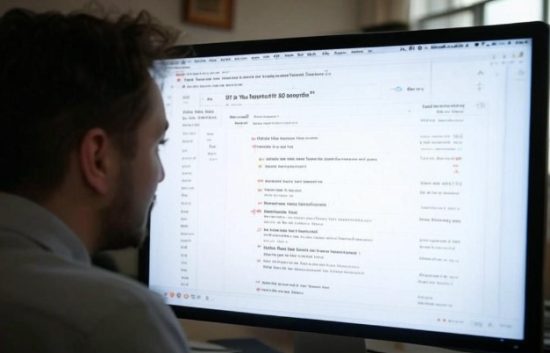
After his visa rejection, the applicant turned to Reddit to share his experience and seek advice. His post quickly gained traction and became a talking point for others who had faced similar denials or had insight into the visa process. The responses ranged from empathetic to critical but were largely informative.
Many users called it a classic case of a “textbook denial.” Several pointed out that a lack of travel history was a major stumbling block, especially when applying for a US visa for the first time.
Others noted that mentioning a romantic relationship in the United States is frequently perceived as a red flag, even when the applicant has no plans to overstay.
There were also discussions around the inconsistency in how the relationship was introduced in the interview. Some users speculated that if the applicant had led with the girlfriend being a part of the plan, instead of revealing it only upon being asked, it might have appeared more transparent. Others argued that in such high-stakes interviews, even small details can lead to major decisions.
What He Could Have Done Differently?
Many members of the Reddit community, including those who had faced similar rejections, offered suggestions that could help others avoid the same fate. One key point was the importance of building a travel history.
Visiting countries like the UAE, the UK, Singapore, or countries in the Schengen Area often helps demonstrate that a traveller has a record of complying with international visa rules and returning to their home country.
Another important strategy involves demonstrating stronger ties to India. Evidence of real estate ownership, financial assets, dependent family members, or long-term employment can help establish an intent to return.
Some also suggested that when discussing the purpose of travel, it is wise to keep the focus on tourism or business, unless explicitly asked about personal relationships.
Finally, although honesty is crucial, applicants must also be strategic in how they frame their answers. Being prepared, rehearsing responses to common questions, and avoiding oversharing can make a major difference during such brief interviews.
Expert Advice for First-Time Indian Visa Applicants
Immigration consultants often stress that first-time Indian applicants face more scrutiny due to several factors, including the relatively lower global ranking of the Indian passport and a high rate of overstay violations historically linked to certain demographics. However, this doesn’t mean that approval is impossible — only that applicants must prepare thoroughly.
They recommend first applying for visas to countries that are considered easy for Indians to visit, such as Dubai, Thailand, or Singapore. Building a credible travel record can help reduce the perceived risk when applying to countries like the US, UK, or Canada.
Experts also suggest maintaining clarity in your narrative. A concise explanation of your travel purpose, supported by a return ticket, hotel bookings, and a detailed itinerary, shows that your visit is well-planned. When possible, include a leave approval letter from your employer to highlight job commitments that await your return.
Avoid volunteering unnecessary personal information unless directly asked, particularly about relationships or sensitive matters that could be misinterpreted.
The Bigger Picture: Visa Denials Among Indian Applicants
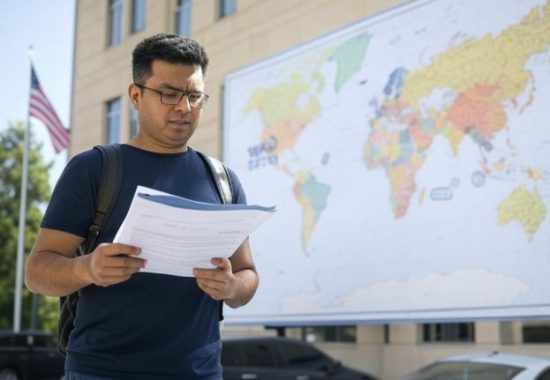
This incident is far from isolated. In recent years, visa denials for Indian citizens have been rising. Long processing times, limited interview slots, and increased scrutiny have all contributed to more challenging approval processes.
First-time applicants are especially vulnerable. Often, consular officers base their decision on a very short interaction. Documents are not always reviewed thoroughly unless something in the interview raises concern or reassurance is needed.
What this case underlines is that the visa process is less about the trip itself and more about how the consulate perceives your intent. Even when everything is legitimate, perception matters. The assumption is that if you cannot prove you’ll return, your application poses a risk — no matter how innocent your plan might be.
What Went Wrong?
To truly understand why the visa application was rejected, it’s helpful to break down the situation into individual components. Each element of the applicant’s profile contributed, in varying degrees, to the final decision made by the consular officer.
Here’s a simplified snapshot of the key factors at play and how they were likely perceived during the brief interview.
| Factor | Applicant’s Response | Risk Level |
| Travel History | No prior international travel | High |
| Purpose of Visit | Vacation and girlfriend visit | Medium-High |
| Friends/Family in US | Girlfriend residing in Florida | High |
| Employment in India | Full-time job | Low |
| Documents Checked | Not reviewed | Not Applicable |
While each factor on its own might not trigger a rejection, the combination of multiple high-risk indicators, especially the lack of travel history and perceived emotional ties to the US, created a profile that raised too many concerns. It’s a clear reminder that even small details can weigh heavily in the eyes of a visa officer.
Conclusion: Lessons from a 40-Second Visa Rejection
The speed and finality of the decision in this case make it particularly striking. In less than a minute, years of saving, planning, and excitement were reduced to a denial slip. It highlights the sobering truth about visa interviews: they’re as much about perception and risk assessment as they are about facts.
Being honest is always the right approach, but combining that honesty with preparation, strategic communication, and evidence of ties to your home country can significantly improve the odds. For this Indian applicant, the rejection was an unfortunate reality check, but one that others can learn from.
For future applicants, the takeaway is simple: treat the visa interview as a professional presentation of your intent — prepare like it’s an exam, stay confident, and back your words with facts.
